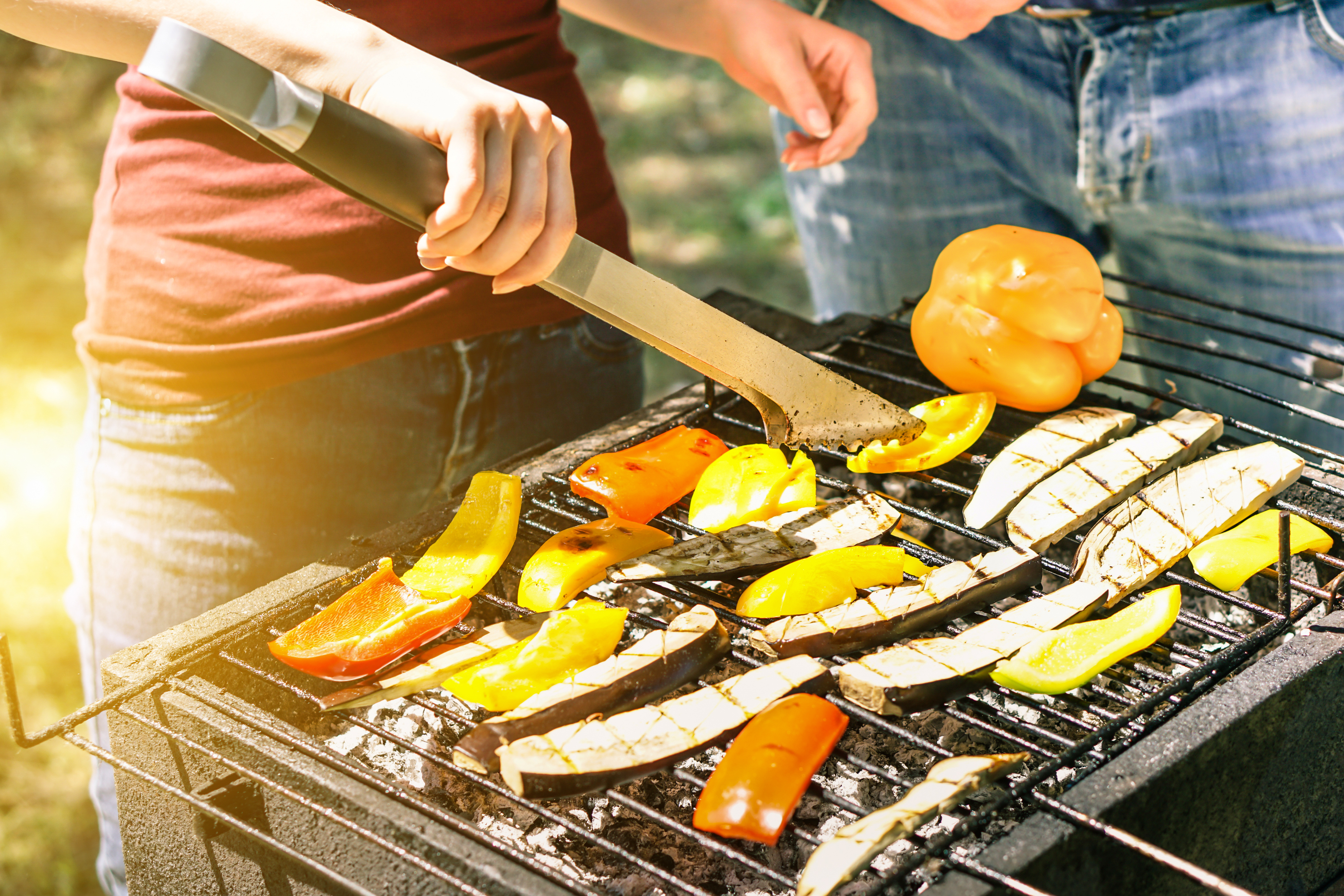Learn the differences between bronchoscopy and endoscopy, including what each procedure entails and...
Read More

Spring is in full bloom, temperatures are rising and grilling season is officially here. With the delicious smell of barbecue in the air, it’s easy to overindulge. Fortunately, there are ways to enjoy flavor-packed foods without compromising your health and wellness. Consider these tips when planning your next outdoor gathering.
When many people think of grilling, they think of burgers and steaks. However, red meat isn’t the healthiest choice. Consider replacing it with a heart-healthy option. “Red meat contains a lot of saturated fat, which is bad for your heart,” said Joshua George, R.D., Clinical Nutrition and Patient Services manager at Inspira Health. “It’s linked to high cholesterol, which increases the risk of heart attack and stroke.”
Instead, trim off excess fat and limit your portion size of red meat or opt for foods lower in saturated fat. Some options that don’t sacrifice flavor include chicken kebabs, marinated fish filets, turkey burgers and vegan meat alternatives. Complement your meal with a whole grain bun for extra fiber or a lettuce wrap for fewer calories.
Grilling is an excellent way to get more fruits and vegetables onto your plate—you should aim for a meal that’s about 50 percent produce. Plus, fruits and vegetables are lower in calories and more filling than most starches. Chopped salads, veggie skewers and Portobello burgers are great meatless options. For dessert, try grilling peaches, pineapple or watermelon. Fruit contains natural sugars that caramelize in high heat, so grilling gives them extra flavor and sweetness.
“When meat is exposed to open flames and high heat, it creates heterocyclic amines. The smoke caused by fat burning on the grill contains another chemical, polycyclic aromatic hydrocarbons,” said George. “These two chemicals have been linked to an increased risk of cancer.”
Ways to reduce the formation of carcinogenic chemicals include:
“There’s a definite uptick in foodborne illness during the summer,” said George. “This is because warmer temperatures cause harmful germs to spread. And it’s common for foods to be held at inappropriate temperatures for long periods of time during outdoor gatherings.”
Practice food safety by taking these steps:
Always use a meat thermometer to ensure your food is safe for consumption. The minimum temperature guidelines are:
For more information or to book an appointment with an Inspira Health dietitian, please visit InspiraHealthNetwork.org.
Inspira Health is a high reliability organization (HRO), which means safety is the top priority for patients and staff. To make an appointment, call 1-800-INSPIRA.

Learn the differences between bronchoscopy and endoscopy, including what each procedure entails and...
Read More
Many take daily vitamins for hair growth and digestion, but do they work? Most diseases treated by...
Read More
Are you concerned about being underweight? While much attention is placed on the health risks of...
Read More
The material set forth in this site in no way seeks to diagnose or treat illness or to serve as a substitute for professional medical care. Please speak with your health care provider if you have a health concern or if you are considering adopting any exercise program or dietary guidelines. For permission to reprint any portion of this website or to be removed from a notification list, please contact us at (856) 537-6772